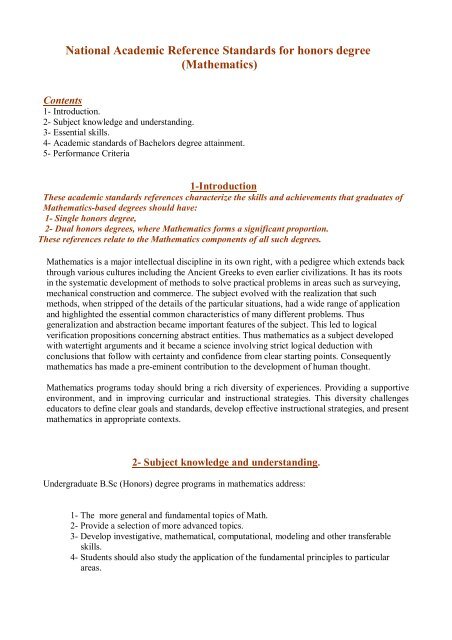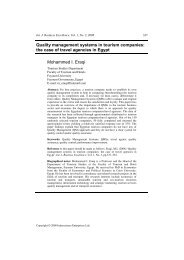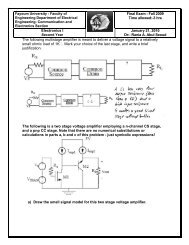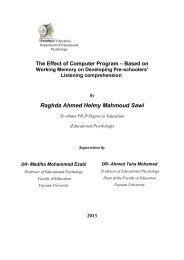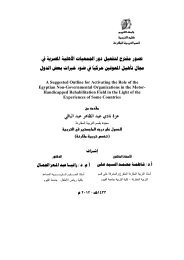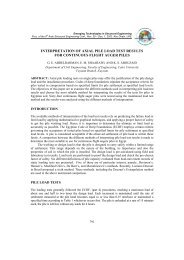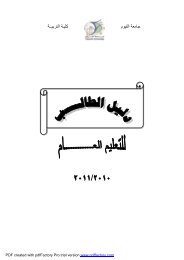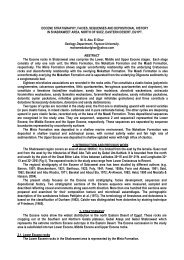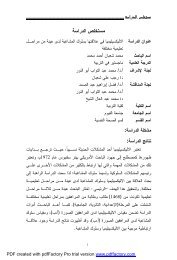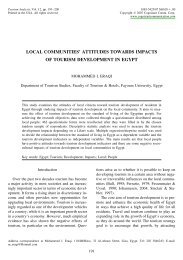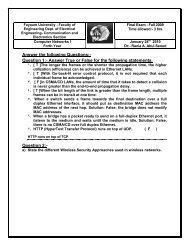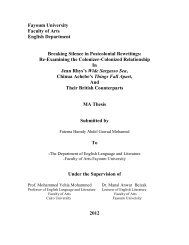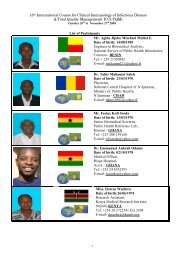National Academic Reference Standards for honors degree
National Academic Reference Standards for honors degree
National Academic Reference Standards for honors degree
Create successful ePaper yourself
Turn your PDF publications into a flip-book with our unique Google optimized e-Paper software.
<strong>National</strong> <strong>Academic</strong> <strong>Reference</strong> <strong>Standards</strong> <strong>for</strong> <strong>honors</strong> <strong>degree</strong><br />
(Mathematics)<br />
Contents<br />
1- Introduction.<br />
2- Subject knowledge and understanding.<br />
3- Essential skills.<br />
4- <strong>Academic</strong> standards of Bachelors <strong>degree</strong> attainment.<br />
5- Per<strong>for</strong>mance Criteria<br />
1-Introduction<br />
These academic standards references characterize the skills and achievements that graduates of<br />
Mathematics-based <strong>degree</strong>s should have:<br />
1- Single <strong>honors</strong> <strong>degree</strong>,<br />
2- Dual <strong>honors</strong> <strong>degree</strong>s, where Mathematics <strong>for</strong>ms a significant proportion.<br />
These references relate to the Mathematics components of all such <strong>degree</strong>s.<br />
Mathematics is a major intellectual discipline in its own right, with a pedigree which extends back<br />
through various cultures including the Ancient Greeks to even earlier civilizations. It has its roots<br />
in the systematic development of methods to solve practical problems in areas such as surveying,<br />
mechanical construction and commerce. The subject evolved with the realization that such<br />
methods, when stripped of the details of the particular situations, had a wide range of application<br />
and highlighted the essential common characteristics of many different problems. Thus<br />
generalization and abstraction became important features of the subject. This led to logical<br />
verification propositions concerning abstract entities. Thus mathematics as a subject developed<br />
with watertight arguments and it became a science involving strict logical deduction with<br />
conclusions that follow with certainty and confidence from clear starting points. Consequently<br />
mathematics has made a pre-eminent contribution to the development of human thought.<br />
Mathematics programs today should bring a rich diversity of experiences. Providing a supportive<br />
environment, and in improving curricular and instructional strategies. This diversity challenges<br />
educators to define clear goals and standards, develop effective instructional strategies, and present<br />
mathematics in appropriate contexts.<br />
2- Subject knowledge and understanding.<br />
Undergraduate B.Sc (Honors) <strong>degree</strong> programs in mathematics address:<br />
1- The more general and fundamental topics of Math.<br />
2- Provide a selection of more advanced topics.<br />
3- Develop investigative, mathematical, computational, modeling and other transferable<br />
skills.<br />
4- Students should also study the application of the fundamental principles to particular<br />
areas.<br />
١١


